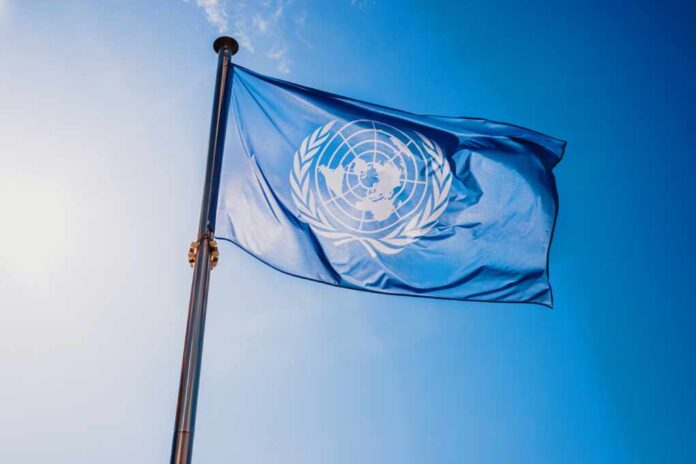
The United Nations Security Council passed a resolution this week urging accelerated humanitarian aid to the Gaza Strip. However, the discussion surrounding the matter showed the growing divide between the United States and Russia, with both countries abstaining from the vote for distinctly different reasons.
The final version of the resolution called for “urgent and extended humanitarian pauses and corridors throughout the Gaza Strip,” aiming to facilitate rapid and unhindered humanitarian access. The U.S. expressed dissatisfaction with the resolution for not condemning the October 7 Hamas attack explicitly. Russia, on the other hand, was upset because the final version of the resolution did not demand that Israel and Hamas agree to an immediate ceasefire. Russia appeared to claim that not including such language amounted to a tacit approval of Israel’s continuing actions in Gaza.
US, Russia Again Clash Over Gaza As UN Security Council Passes Resolution https://t.co/nolL1N9xb7
— zerohedge (@zerohedge) December 22, 2023
The resolution initially called for an “urgent cessation” of hostilities, but the U.S. proposed a more passive approach as it stood in support of Israel. While the U.S. was able to obtain the modifications it requested, the move isolated it from other members who expressed concern over the rising death toll in Gaza — reportedly surpassing 20,000, predominantly women and children.
Russia meanwhile advocated for a complete halt to the fighting. It proposed an amendment to revert to the original language of “immediate cessation of hostilities.” The U.S. used its veto power to block that request.
UN Secretary-General Antonio Guterres expressed hope that the resolution could lead to a humanitarian ceasefire. He criticized Israel’s military operations, which he claims are significantly hampering the distribution of humanitarian aid. While he condemned the October 7 terror attack by Hamas, he pointed out the severe hunger crisis in Gaza, with clean water being scarce.
U.S. Ambassador to the UN Linda Thomas-Greenfield spoke to the resolution’s role in addressing the humanitarian crisis and the importance of working toward lasting peace.
Russia’s UN Ambassador, Vassily Nebenzia, labeled the resolution as “toothless,” criticizing the U.S. for its approach.
Israel’s deputy ambassador to the UN, Brett Jonathan Miller, criticized the Security Council for not condemning Hamas for its attacks, which resulted in significant casualties and hostage-taking.
In the U.S., Republican presidential candidate Nikki Haley made a connection on the campaign trail between Russian President Vladimir Putin and the Hamas attack, speculating about covert Russian support for Palestinian militants. However, there appears to be no reported evidence to support that claim.
The resolution also addressed the crucial point of aid deliveries. It eliminated a previous request for the UN to exclusively monitor all humanitarian consignments to Gaza and instead requested the appointment of a coordinator to oversee aid deliveries, demanding cooperation from both Israel and Hamas.














